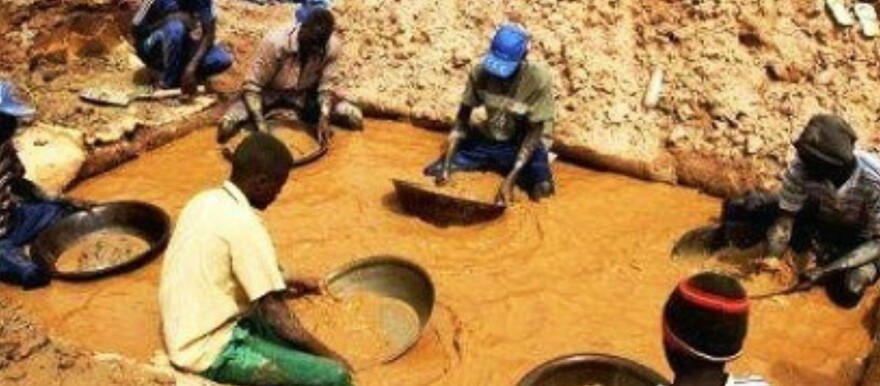David De Dau, Chairperson of the sub-committee of the Great Lakes Region in the Reconstituted National Legislative Assembly, said that the regional body has resolved to ban illegal gold mining in Africa.
Speaking to journalists on Thursday, after attending a conference of the Great Lakes Region member states in the Ugandan capital, Kampala, Dau said the conference discussed the Protocol against the Illegal Exploitation of Natural Resources in Africa.
He added that the conference received a report on the illegal gold mining in the region, especially in the Democratic Republic of Congo, where some companies used local communities, including youth and women, to work in illegal mining fields.
“There are companies that use the local communities, especially the youth and women, to mine small quantities of gold and sell it to them at a very low price. The companies then sell that gold to the big businesses,” he said.
He revealed that the Eastern Equatoria and Greater Pibor region are the two areas in South Sudan where there is illegal gold mining.
“There are some reports that talk about Eastern Equatoria as one of the affected regions. The local community there are doing traditional mining of the gold for their own survival and then sell it so cheap. The same thing is happening in the Greater Pibor Administrative Area,” Dau revealed.
The legislator said his committee will table the Protocol Against the Illegal Exploitation of Natural Resources in Africa before the national parliament.
The protocol, known as the “Protocol Against the Illegal Exploitation of Natural Resources,” was officially adopted on 30 November 2006 during a conference held in Dar-es-Salaam, United Republic of Tanzania.
Geared towards promoting peace, security, and sustainable development in the Great Lakes Region, the Heads of State and Government of the Member States of the International Conference on the Great Lakes Region (ICGLR) unanimously adopted the groundbreaking protocol aimed at curbing the illegal exploitation of natural resources.
The protocol is a testament to the commitment of ICGLR member states to address the endemic conflicts and insecurity that have plagued the region, exacerbated in part by the illegal exploitation of natural resources. It underscores the importance of upholding fundamental principles enshrined in the United Nations Charter and the Constitutive Act of the African Union, including territorial integrity, sovereignty, and non-interference.
The protocol emphasizes that permanent sovereignty over natural resources is an inalienable right of the people and should be exercised in a way that promotes national development and the well-being of the population. The illegal exploitation of natural resources in the Great Lakes Region has been identified as a major factor contributing to conflicts and insecurity, hindering the achievement of the Millennium Development Goals.
Of particular concern is the negative impact of illegal exploitation on the environment and the resources needed to combat poverty. The protocol calls for the establishment of a regional mechanism for the certification of natural resources, aiming to prevent illegal activities and ensure responsible and sustainable exploitation.
To ensure effective implementation, the protocol established a Committee Against the Illegal Exploitation of Natural Resources composed of individuals known for their moral standing, impartiality, and expertise. The Committee’s responsibilities include collecting and analyzing information, proposing measures to combat impunity, and promoting awareness among the public and civil society.
The protocol also outlines obligations for member states, including measures to combat impunity, preventive actions, and cooperation in law enforcement and investigations. It highlights the importance of respecting human rights, protecting witnesses, and imposing sanctions on individuals and legal entities involved in illegal exploitation.




